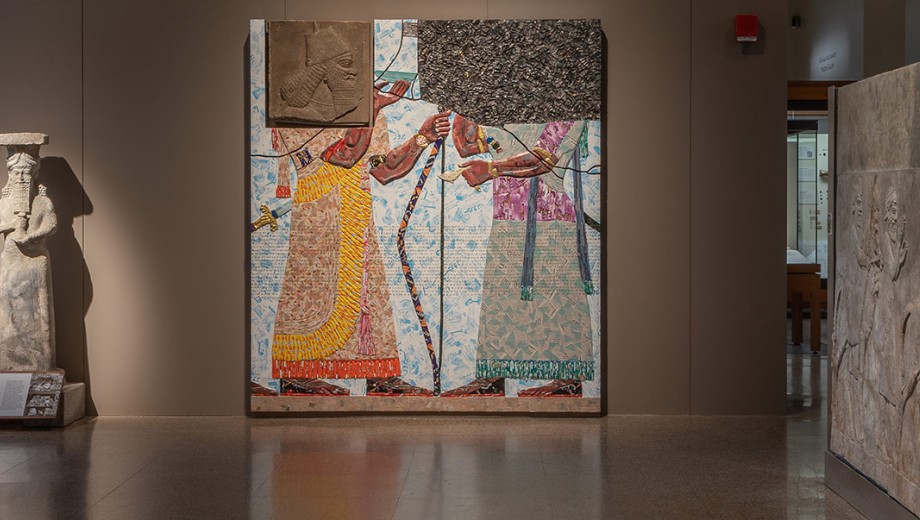Tableau spoke with Timothy P. Harrison, AM’91, PhD’95, about his recent transition to becoming director of the Institute for the Study of Ancient Cultures, West Asia and North Africa (ISAC). Here he gives more detail about his agenda for ISAC.
Harrison works in an early-twentieth-century office with a fireplace, gleaming wood furniture and floors, and enormous leaded-glass bookshelves housing foundational books about all aspects of the Middle East. His 13 predecessors each added books and objects to this office. Harrison realizes the august modern Gothic workplace epitomizes both the legacy of and need for ISAC’s advancement. From this vantage point, he is considering the highest priorities for ISAC. Through extensive conversations with UChicago colleagues and leading scholars worldwide, he has defined four themes that will be “important to the long-term vision for ISAC and the continuation of our relevance for generations to come.”
First, strengthen its ongoing commitment to foundational research. For example, ISAC scholars—along with an international team of experts—have directed, written, or contributed to the Assyrian, Hittite, and Demotic dictionaries and have also conducted extensive epigraphic surveys. “These projects involve teams of the best photographers, artists, and scholars for epigraphic and foundational research at the highest standards,” says Harrison of the ongoing scholarship in Chicago and in Luxor, Egypt.
Second, assemble interdisciplinary research teams of humanists and scientists—including archaeologists, historians, chemists, physicists, philologists, and computer scientists—to conduct research that engages global issues and asks the large questions. For example, on climate change, ISAC archaeologists have assembled rich empirical records spanning thousands of years of human history that can ‘ground truth’ for the computational simulations of climate scientists, which are based largely on climate records from the past 100 to 150 years. “Through our collective data, we can view where and when human environmental interaction impacted and changed the climate,” Harrison says. “Climate change is a good example of how the humanities and sciences converge at ISAC.”
Third, preserve and restore the cultural heritage of the Middle East. “The destruction of cultural heritage is an overwhelming problem in this region,” Harrison says. Where cultural art and architecture have been destroyed, Harrison seeks to build partnerships with Middle Eastern communities and institutions working collaboratively to help conserve and restore their cultural heritage. “Cultural heritage is the unifying glue for Middle Eastern societies,” he says.
Fourth, foster community engagement—locally and globally. These efforts involve ISAC’s involvement at the University, on the South Side of Chicago, and with partnerships in the Middle East.
Harrison says he never dreamed he would return to UChicago to head up ISAC—a name that he is pleased has caught on quickly. With these themes in mind, however, he is looking forward to the opportunity for a new agenda that builds on a long, storied legacy.

